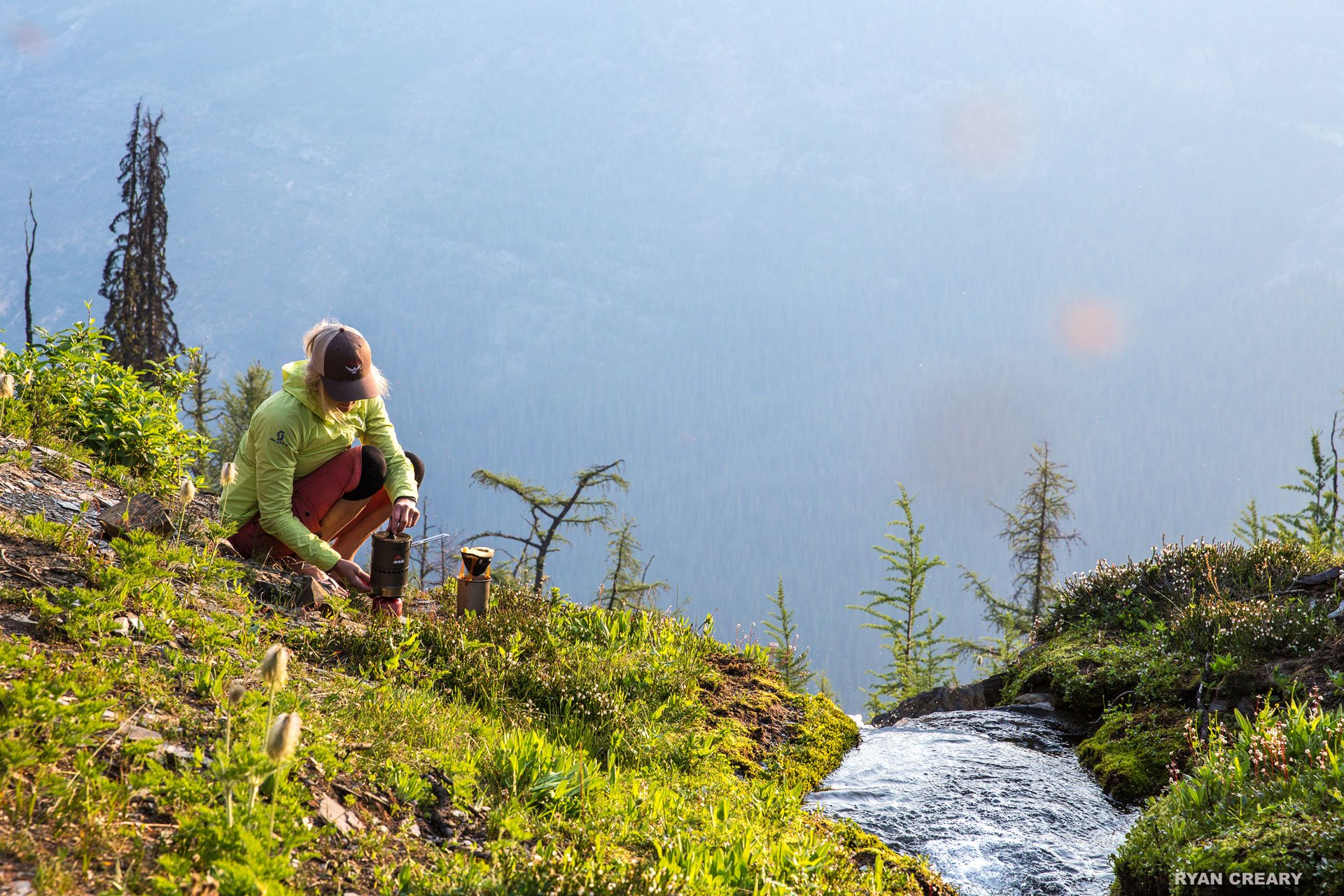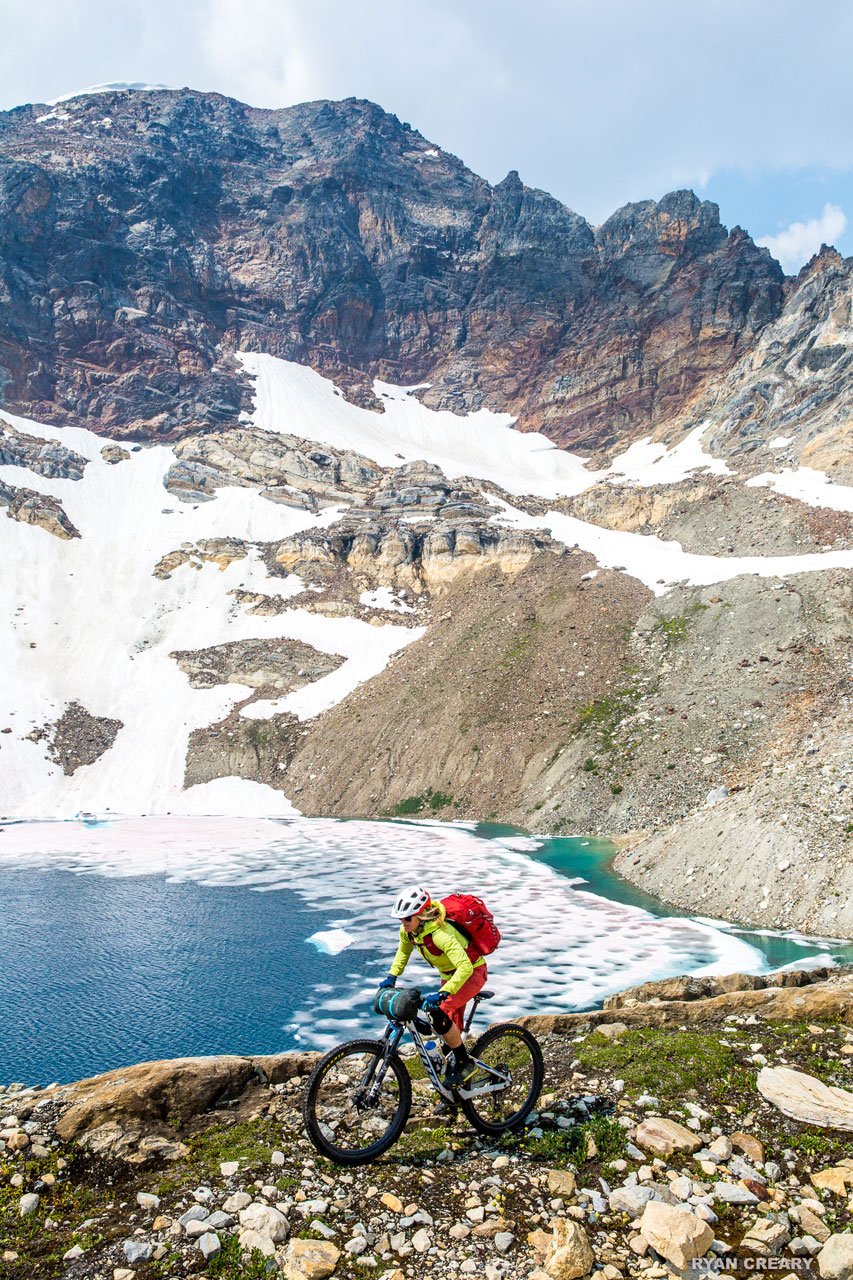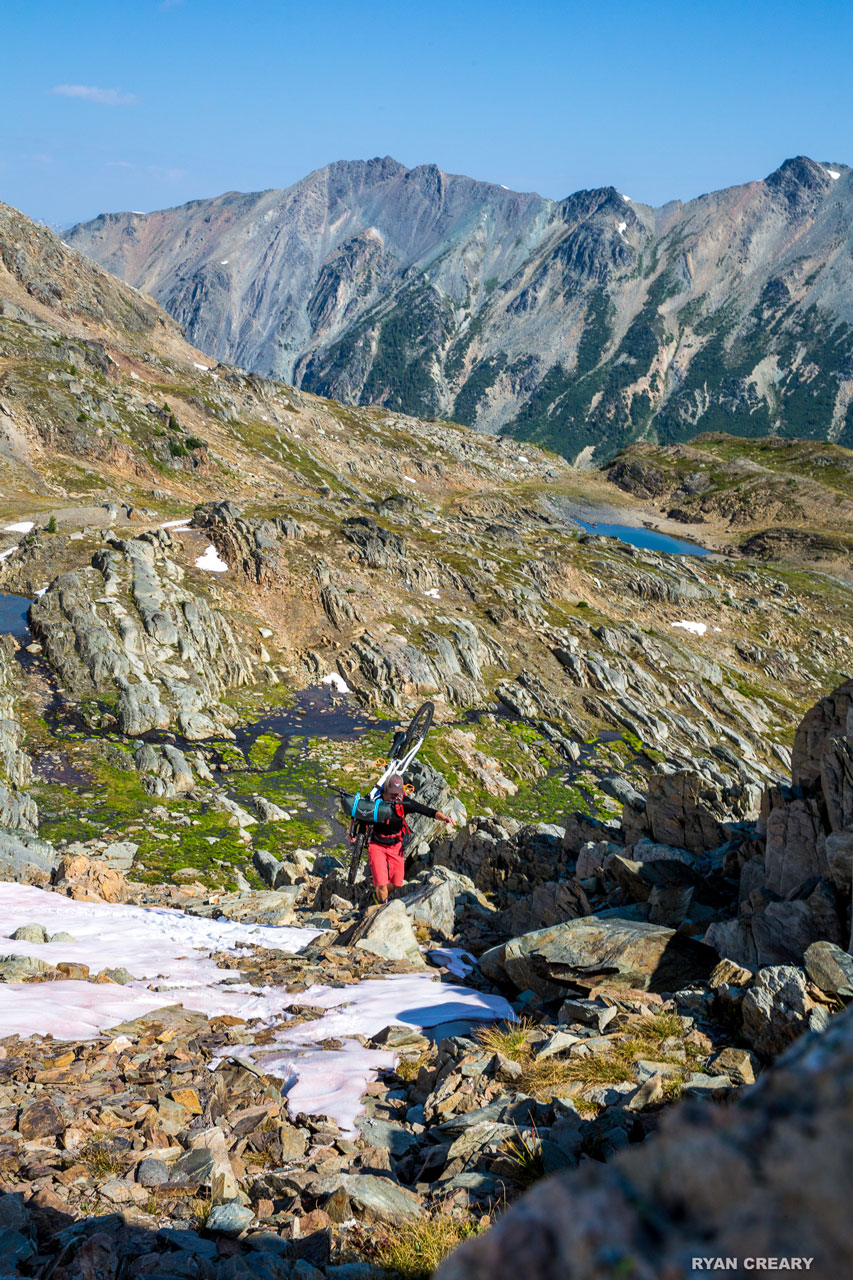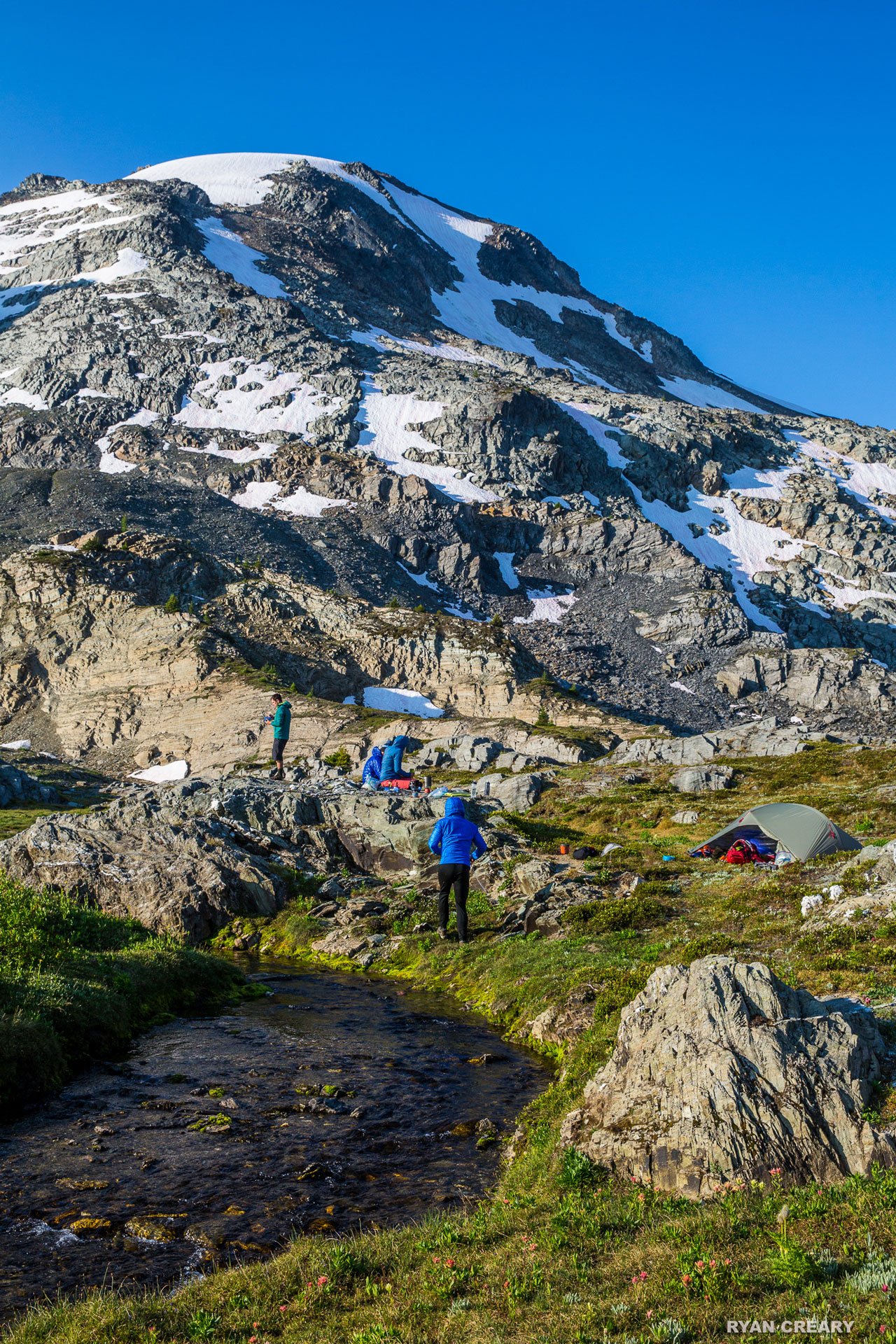Fostering a Stewardship Culture: Purcell Mountain Bike Traverse
By Lorraine Blancher
Photos by Ryan Creary
As passionate outdoor aficionados, we all love to experience the natural beauty of our planet. As humans, we know our decisions can have an impact. How we balance our adventurous desires with our responsibility to protect the precious places we love is paramount to ensuring they will be here for generations to come.
When my team and I were preparing for our six day, self-supported mountain bike traverse through the stunning and rugged Purcell Mountains of British Columbia, the notion of being a part of an unwritten stewardship culture was at the forefront of any decision. Minimizing our impact was key.
We were pioneering a route no mountain biker had ever thought about completing and we wanted to tread lightly. This meant being respectful of the environments we would travel through, and we needed to carefully consider the gear we chose to bring.

Our route would link together stunning alpine ridges (that were favorable for mountain biking) with forgotten and overgrown forestry service roads and lesser known provincial recreation trails. We were diligent with our selection and avoided any parks, private lands or protected areas that do not allow mountain bikes. If anything, we wanted our route to foster responsible future backcountry mountain bike ethos and inspire other backcountry users to also practice the ethics of Leave No Trace. More than half of the route we had reconnoitred over the years – some on personal adventures and some by myself personally working as a certified Association of Canadian Mountain Guide (ACMG) hiking guide. Within our mix of known terrain, there was still plenty of uncertainty—an essential ingredient to a true adventure.

We had four major ascents along the route which totaled 7,000 vertical meters (23,000 feet), and 105 kilometers (65 miles) of traversing. Most of this was through rugged and challenging terrain. We did not want the burden of a heavy pack, as we also wanted to enjoy the ride along the way. We had 45 liters of pack space each to fill with gear, tools, food and safety equipment. This allotment meant every ounce and square inch of our pack space was invaluable. Every single piece of gear we brought had to be efficient, light and small. Thankfully with today’s modern equipment we were able to pack within our space limitations, be considerate of our overall footprint, yet still eat and sleep in luxury.
One of our main gear essentials was our stove. We wanted our cooking setup to maximize fuel efficiency – the less fuel it would burn, the less fuel we would have to carry and the less fuel it would cost the planet overall. For those reasons we chose the MSR Reactor 1.7 L stove. It fits with our less is more ethos. Less fuel, less weight, less garbage, lower impact, you get the idea – less is more.
The next key piece of gear was our shelter. We wanted to retreat every night to maximum comfort, and also have a cozy place to hide if the torrential alpine rains or annoying mosquitoes got out of hand. The MSR Carbon Reflex 2 was our ultimate choice as it is incredibly light and extremely packable, yet comfortably fits two people with gear.

Another critical piece of gear was our water filtration system. We would often drink directly from alpine springs and streams, but we also knew there would be times when we’d need to treat it first. We thought about using the ultimate space-saving Aquatabs, but we ended up taking the MSR TrailShot microfilter and Trail Base Water Filter Kit. That turned out to be one of the best decisions! The ability to drink delicious pristine water outweighed the minor extra weight we would carry versus using Aquatabs. Our packs stayed light as we could quickly fill our water bladder at short rest stops. At night we set up the gravity feed system which quickly and efficiently filtered water for our group.
We were also able to keep our packs light and minimize our impact by bringing delicious homemade freeze-dried meals. These hearty meals produced minimal garbage (before and after our trip), created no grey water as we prepared them in our foldable bowls that were licked clean (leave no trace) and fit with our overall trip theme – less is more.

After six grueling days of traveling through the remote Purcell mountains, we successfully completed our traverse. The moments of highlights—morning coffee in the alpine, falling asleep to burbling streams, riding incredible rock slabs, breathtaking ridges—are burned in our memories more than any suffering.
Lorraine Blancher and her partner have mapped out a complete British Columbia Purcell traverse and will complete the northern segment in 2019.
